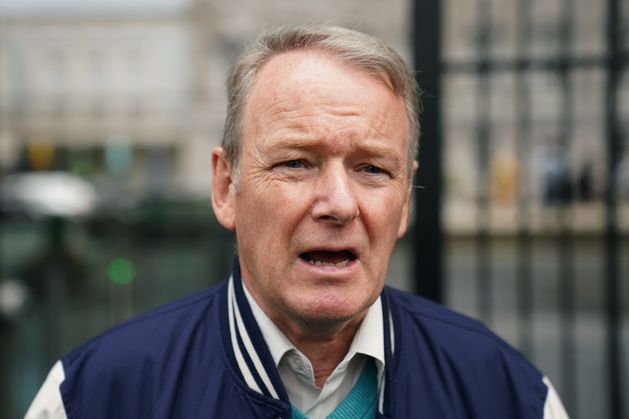Headline: Sinn Féin‘s Brian Stanley Faces Gross Misconduct Inquiry
Brian Stanley’s Allegations: Key Details Unveiled
Former Chairman of the Committee on Public Accounts, Brian Stanley, finds himself embroiled in controversy following preliminary findings of gross misconduct from an internal inquiry by Sinn Féin. The allegations center around the sharing of a hotel room with a woman after a meeting on October 11, 2022, raising significant questions about conduct and accountability in public office. As this situation unfolds, it sheds light on ethics in governmental positions and resonates throughout both political spheres and public discourse.
Who is Brian Stanley?
Brian Stanley, aged 66, served as a prominent TD (Teachta Dála, a member of the Irish Parliament) and led the Committee on Public Accounts, tasked with overseeing government spending. He has been involved with Sinn Féin for many years, championing various causes and holding significant influence within the party. His past efforts concentrated on transparency and accountability in public funds.
What Happened?
The controversy arises from a report alleging that Stanley and a woman, who is not identified, shared a hotel room after dining together in Leinster House, a central hub for Ireland’s political meetings. According to the internal inquiry report, the two had what was described as an "over food and wine" meeting, which led to the subsequent decision to share accommodation.
The internal inquiry detail highlights the serious nature of these allegations, as they question the standards of conduct expected from members of parliament and public officeholders. Sharing a hotel room, even with a known acquaintance, under these circumstances could reflect poorly not only on Stanley but also on the ethical standards of Sinn Féin.
When and Where Did It Occur?
The set of events took place last year on October 11, following a meeting at Leinster House. This venue is often the backdrop to discussions shaping Irish politics, making the incident even more scrutinized due to its potential implications for public trust in political figures.
Why Does This Matter?
The significance of this inquiry extends beyond Stanley’s individual actions. It touches upon broader themes of accountability and ethical behavior in politics. Irish citizens may find themselves reconsidering their trust in public officials as a result of this incident. Moreover, it raises questions about the scrutiny applied to elected officials and the processes through which they are held accountable.
How is Sinn Féin Responding?
Sinn Féin has yet to publicly comment extensively on the findings as the internal inquiry progresses. The party has maintained a strong stance on integrity and transparency, making this inquiry a critical moment for both Stanley and Sinn Féin. Experts in political ethics suggest that how the party handles this situation could influence its reputation and future electoral successes.
Dr. Sarah O’Leary, a political analyst, noted, "This inquiry isn’t just about one person’s actions. It signals to the public how seriously parties take allegations of misconduct. The outcome will have implications far beyond Stanley—it’s a test of Sinn Féin’s commitment to its values."
Implications for the Technology Industry and General Public
While the issue primarily concerns political conduct, its implications stretch into the broader societal context, including the technological industry. In recent years, the integration of technology and politics has raised questions about transparency, data privacy, and ethical conduct in digital platforms. Citizens are increasingly aware of how their leaders interact in both physical and digital realms, and episodes like Stanley’s could further fuel discussions about the integrity of public figures.
Call to Action for Reader Engagement
This unfolding situation encourages readers to reflect on the importance of ethical standards in public office and the impact such events may have on trust in government. What do you think about the implications of this inquiry for public trust in politics? We invite you to share your thoughts and engage in the discussion below. Stay informed about ongoing developments by following our updates, and explore more about political ethics on platforms like TechCrunch, The Verge, and Wired.
As the inquiry unfolds, it serves as a critical reminder of the need for accountability in all sectors, especially in leadership roles dedicated to serving the public effectively.


